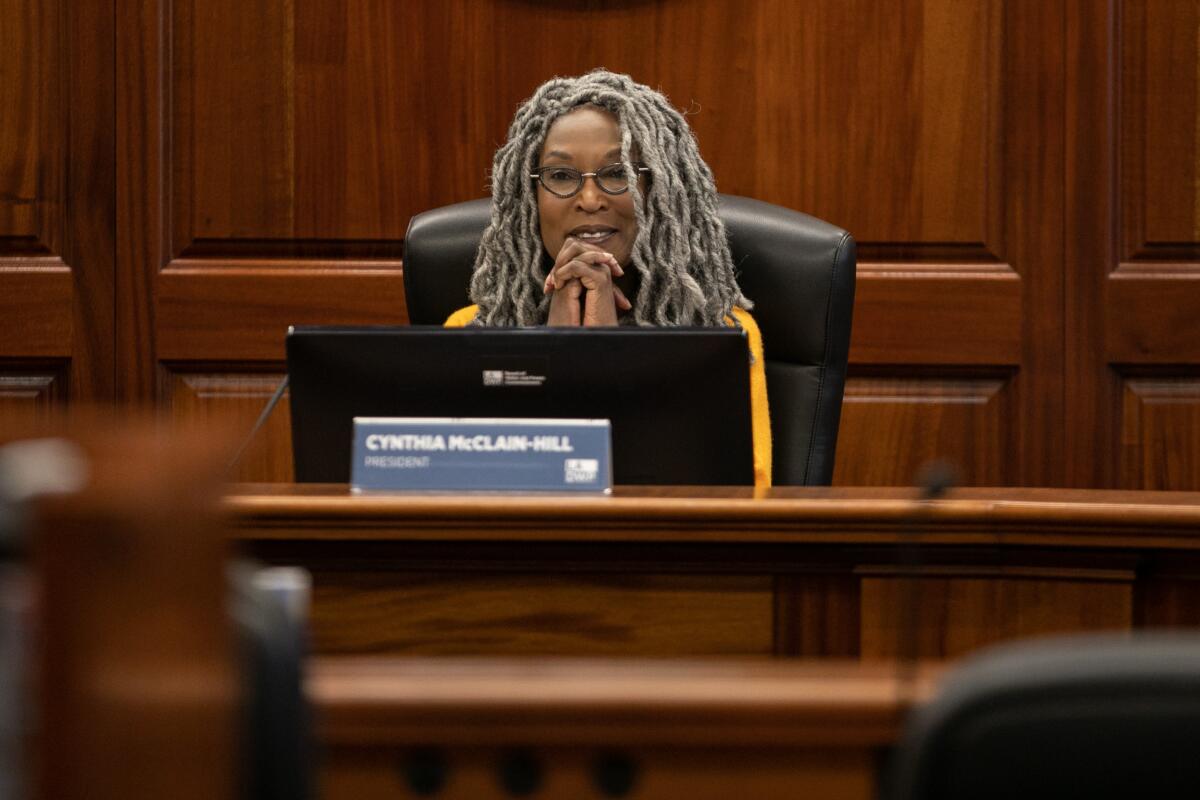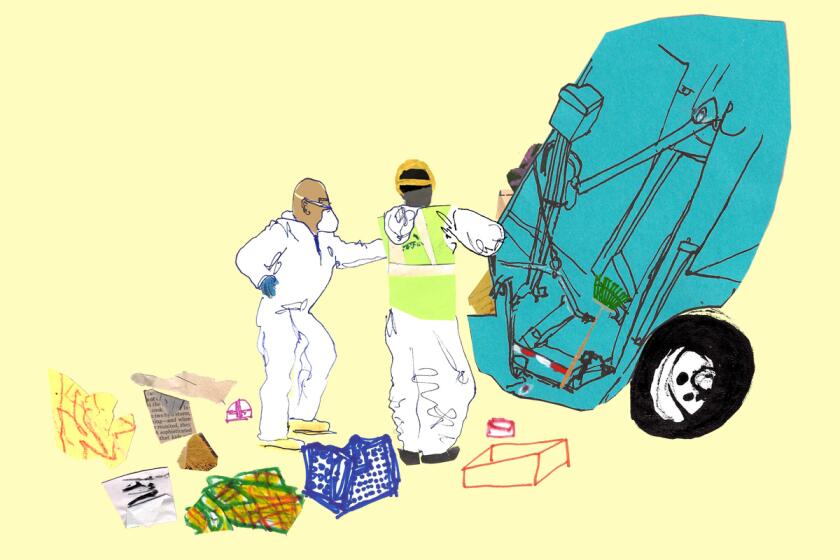‘This is a massive issue’: DWP board seeks answers on backlog of urgent repairs

- Share via
Top officials at the Los Angeles Department of Water and Power on Tuesday blamed poor oversight and planning to explain why power poles and other utility equipment flagged as unsafe have gone unrepaired in recent years.
The Times reported this week that the department launched an effort about three weeks ago to repair 1,600 of the utility’s most dangerous power poles. Some have wood that is severely deteriorated — either in the poles or in the cross-arms, which hold high-voltage wires in place — while others have electrical equipment that needs replacing, officials said.
The overdue repairs came under scrutiny following a lawsuit against the city over a downed DWP power line that killed a father and daughter in Panorama City in 2021. The city recently agreed to settle the case for $38 million.
At Tuesday’s meeting of the board that oversees the DWP, utility officials said that as of Saturday, the utility had 753 outstanding priority one tickets. That classification means “there is an immediate safety and/or reliability risk,” according to the California Public Utilities Commission.
Is there abandoned furniture on your block? Pothole driving you nuts on your commute? Use Shape Your L.A. to learn how to get your city government to address everyday issues.
The DWP’s own standard is to fix a priority one ticket within 24 hours or perform a temporarily fix and reclassify it with lower priority, officials said.
In explaining the backlog, DWP officials told the board that a contractor was brought on to help the utility’s inspection program in 2021.
In the first year, the contractor identified five times the number of issues that the utility had reported the previous year, officials said. But at the time, the utility was focused on replacing poles, not priority one tickets.
Priority one tickets aren’t necessarily assigned to pole replacements, but can also be assigned to cross-arms or other items, Brian Wilbur, senior assistant general manager, told the commission.
Cynthia McClain-Hill, president of the Board of Water and Power Commissioners, asked Wilbur whether priority one tickets “were simply not prioritized?”
“That is correct,” Wilbur replied.
DWP General Manager Marty Adams told the board that the department failed to use the list of the most urgent repairs to inform the order of work. “We’re trying to figure out exactly how that disconnect [was] allowed to happen,” Adams said.
Officials told the commissioners that 695 priority one tickets were closed as of late March. Of that group, 519 work requests were completed, 157 were classified to another priority and 79 tickets were canceled, either because the ticket was a duplicate or the work was completed on another request.
Board members expressed frustration with the revelations about the repairs and asked for reports back on the planned fixes. Others also worried about the utility’s separate backlog of priority two tickets, which can also pose problems.
Get the lowdown on L.A. politics
Sign up for our L.A. City Hall newsletter to get weekly insights, scoops and analysis.
You may occasionally receive promotional content from the Los Angeles Times.
“Beyond this, it makes us wonder what else is being missed?” Commissioner Nicole Neeman Brady said. “This is a massive issue in and of itself. And we should get into how and why it was missed.”
Crews are working seven days a week and contractors are being brought on to address the backlog, officials said. The backlog of priority one repairs is expected to be resolved by May 16, officials said.
At the same time, the utility is receiving up to seven new priority one tickets each day, officials said.
Questioning DWP staff about the lack of oversight, McClain-Hill cited a 2014 Daily News story on the utility’s failure to replace aging poles and associated equipment.
Three years earlier, the state’s Public Utilities Commission audited the DWP’s operations and concluded that the utility did not inspect its overhead wires frequently enough to ensure they are in good condition.
“We’ve been here before, more than once,” McClain-Hill said.
More to Read
Sign up for Essential California
The most important California stories and recommendations in your inbox every morning.
You may occasionally receive promotional content from the Los Angeles Times.















